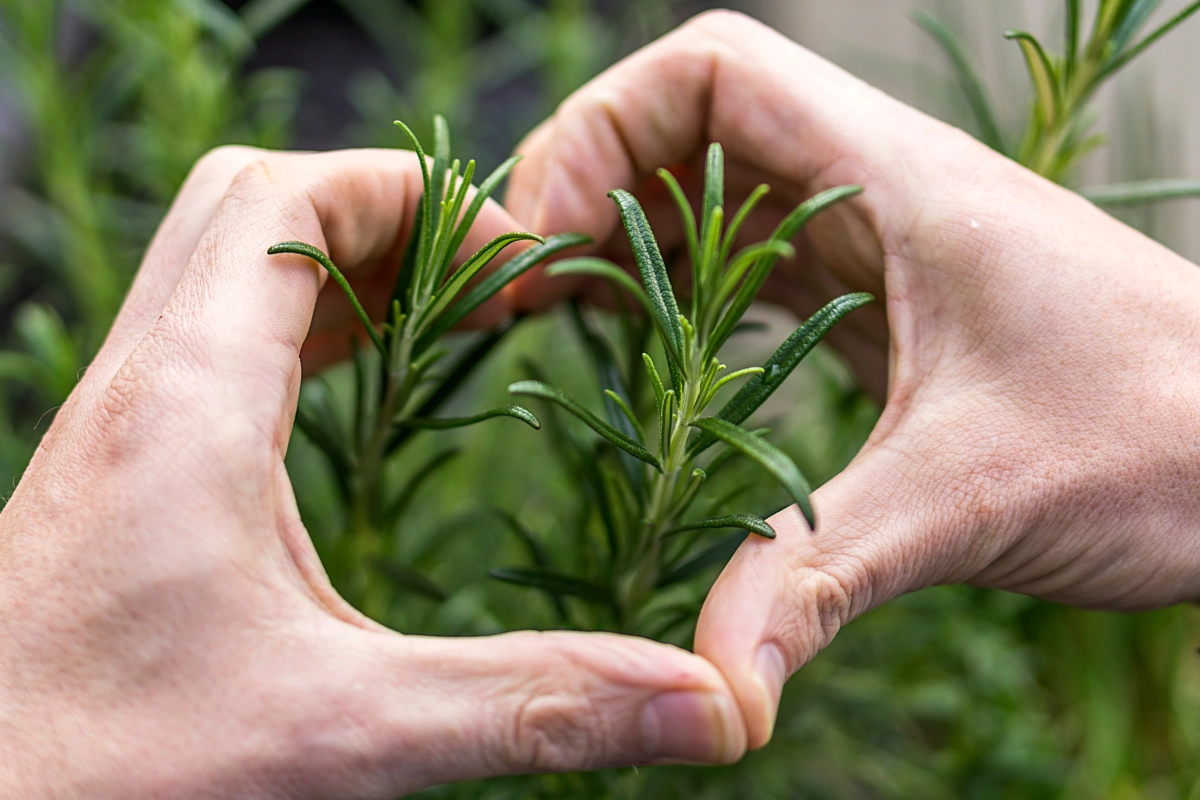Indoor herb garden ideas are easy to implement. They can be fun as well as healthy and is an oh-so-easy DIY project.
The Surprising Health Benefits of Growing Indoor Herbs
Indoor herbs not only add flavor to your meals, but they also offer a range of health benefits. Learn about the advantages of growing herbs indoors in this informative post.
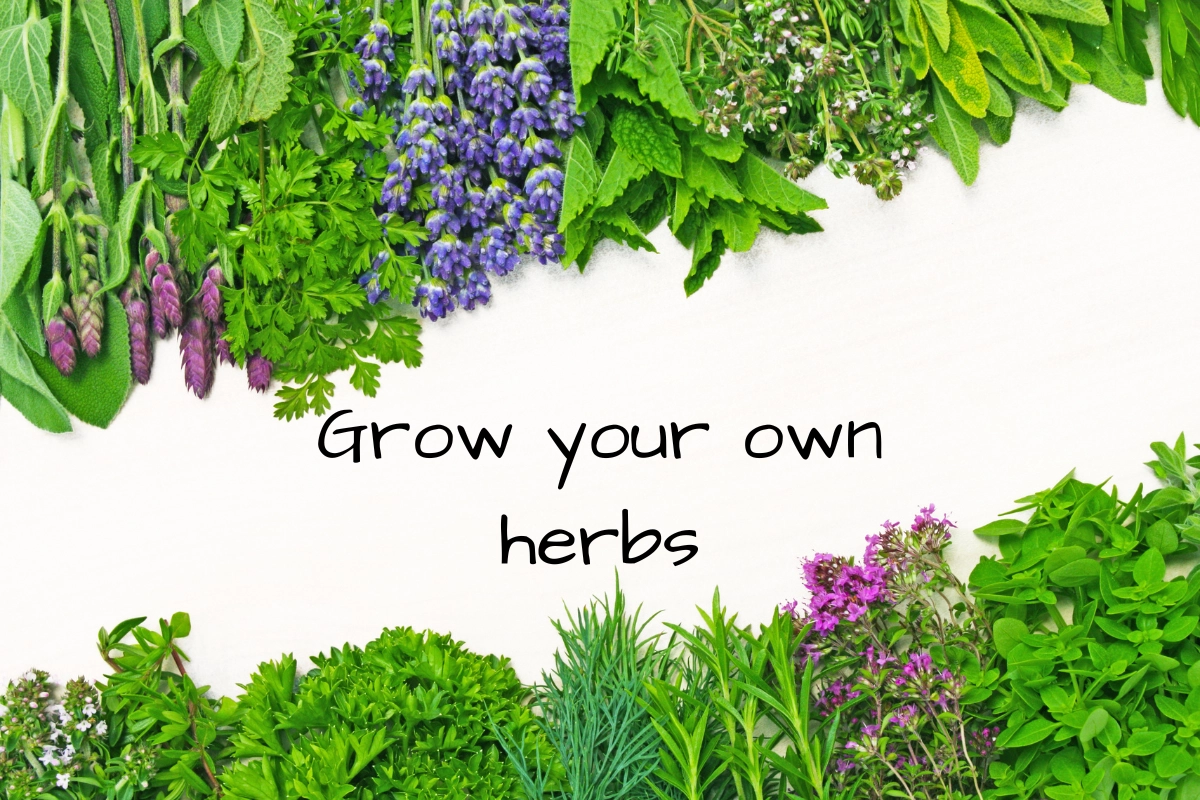
Growing herbs indoors can be a great way to add fresh flavors to your meals, but did you know that they also offer a range of health benefits? From improving digestion to boosting immunity, indoor herbs can be a valuable addition to your home and your health. In this post, we’ll explore the advantages of growing herbs indoors and how they can benefit your well-being.
Indoor herbs can improve air quality
Did you know that indoor air can be more polluted than outdoor air? Chemicals from cleaning products, furniture, and even electronics can release harmful toxins into the air. However, certain indoor herbs like spider plants, peace lilies, and English ivy can help purify the air by removing pollutants and increasing oxygen levels. Not only do these herbs add a touch of green to your home, but they also contribute to a healthier living environment.
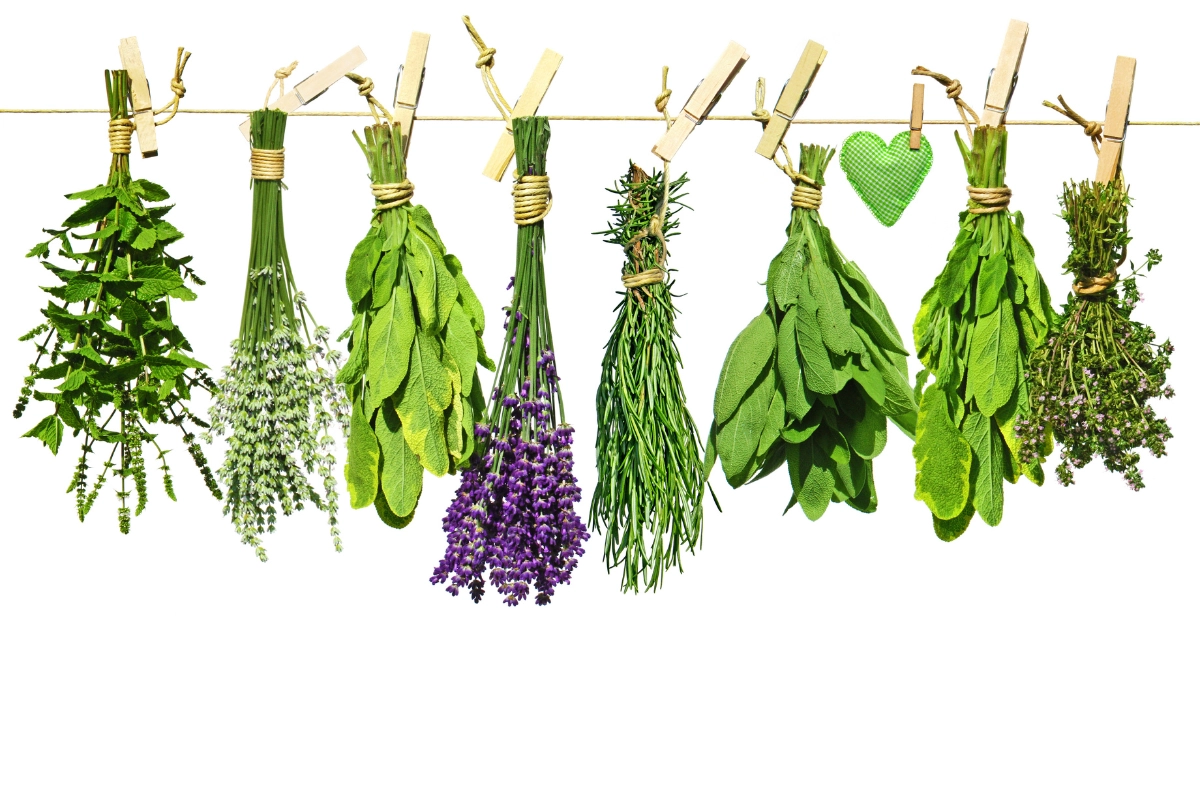
Herbs can boost your immune system
Many herbs have immune-boosting properties that can help keep you healthy. For example, garlic is known for its antibacterial and antiviral properties, while ginger has anti-inflammatory effects that can help reduce the risk of chronic diseases. Echinacea is another herb that has been shown to enhance the immune system and reduce the duration of colds and flu. By growing these herbs indoors, you can easily incorporate them into your meals and reap their health benefits.
Certain herbs can aid in digestion
Growing herbs indoors can also improve your digestive health. For example, peppermint has been shown to relieve symptoms of irritable bowel syndrome (IBS) and improve digestion. Fennel is another herb that can help with digestion by reducing bloating and gas. By having these herbs readily available in your home, you can easily add them to your meals and improve your digestive health.
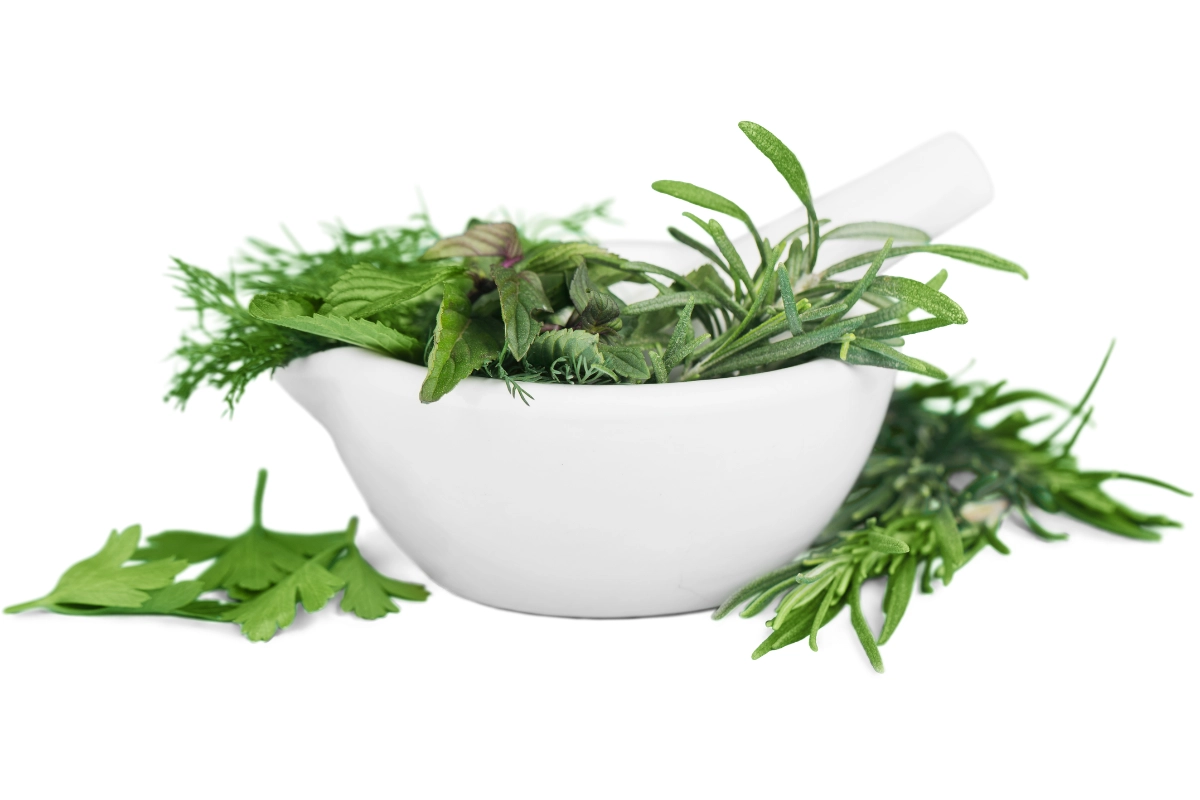
More Indoor Herb Garden Ideas
Herbs can reduce stress and anxiety
In addition to their culinary and digestive benefits, growing indoor herbs can also have a positive impact on your mental health. Studies have shown that certain herbs, such as lavender and chamomile, have calming properties that can reduce stress and anxiety. Simply inhaling the scent of these herbs can have a relaxing effect on the mind and body. By incorporating these herbs into your indoor garden, you can create a peaceful and calming environment in your home.
Growing herbs can be a fun and rewarding hobby
Not only do indoor herbs add flavor and nutrition to your meals, but they also offer a range of health benefits. Growing herbs can be a fun and rewarding hobby that allows you to connect with nature and enjoy the satisfaction of growing your own food. Plus, it’s a great way to save money on expensive store-bought herbs. With a little bit of care and attention, you can create a thriving indoor herb garden that will provide you with fresh herbs all year round.
Growing herbs indoors – Choose the right herbs
Not all herbs are suitable for indoor growing. Choose herbs that are compact and don’t require a lot of space to grow. Some great options include basil, chives, cilantro, mint, oregano, parsley, rosemary, sage, and thyme.
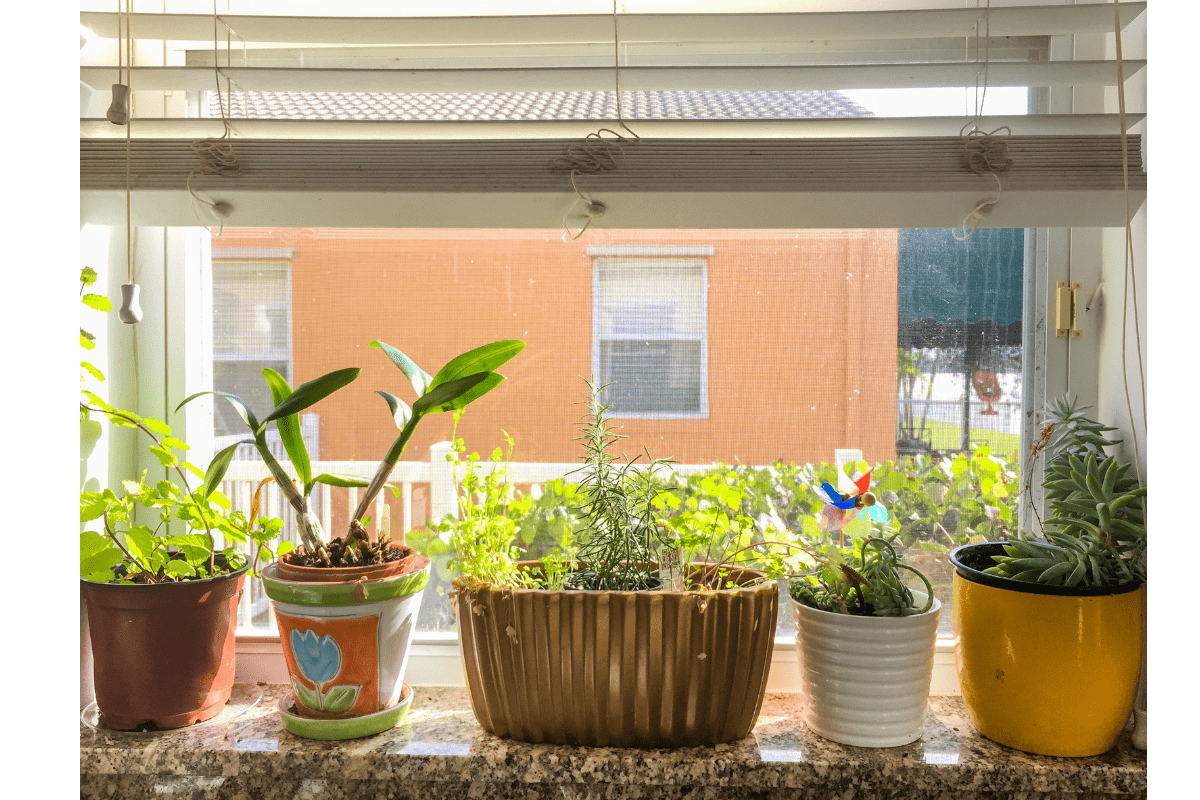
Find the right location
Herbs need plenty of sunlight to grow, so choose a location that gets at least 6 hours of direct sunlight per day. South-facing windows are ideal, but if you don’t have access to one, you can use grow lights to supplement the light.
Use the right soil
Herbs need well-draining soil that is rich in nutrients. Use a high-quality potting mix that is specifically formulated for herbs. You can also add some perlite or sand to improve drainage.
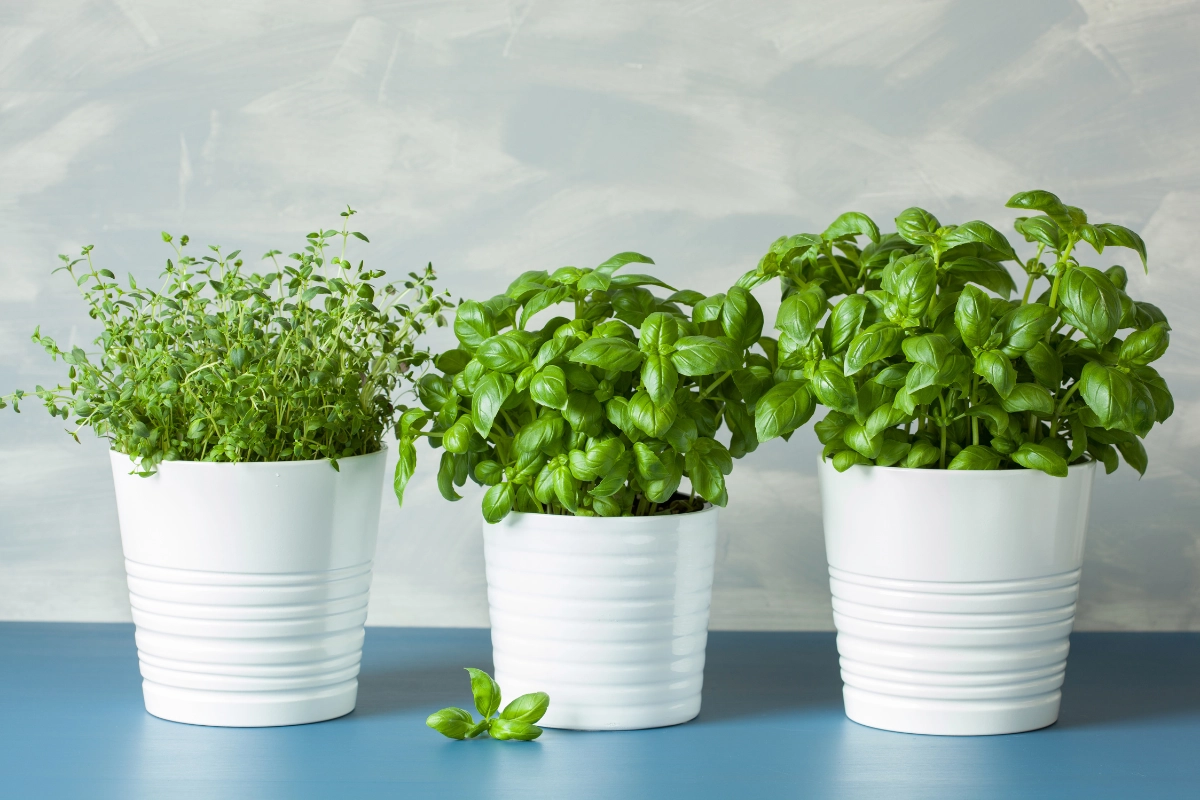
Choose the right container
Herbs can be grown in a variety of containers, including pots, hanging baskets, and window boxes. Make sure the container has drainage holes to prevent water from accumulating at the bottom.
Water properly
Herbs need to be watered regularly but be careful not to overwater them. Allow the soil to dry out slightly between waterings. Use a watering can or spray bottle to water the herbs gently.
Fertilize regularly
Herbs need regular fertilization to thrive. Use a balanced fertilizer that is specifically formulated for herbs. You can also use organic fertilizers like compost or worm castings.
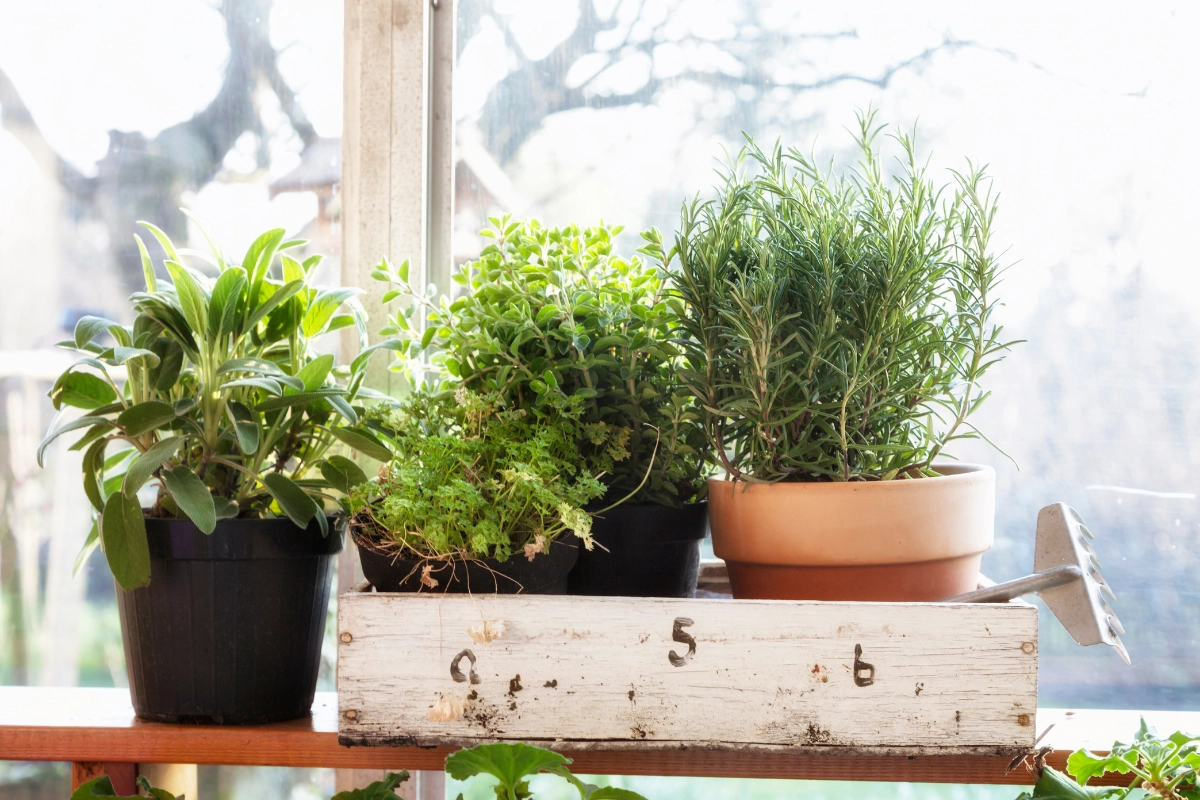
Prune regularly
Pruning helps to promote bushier growth and prevents the herbs from becoming too leggy. Pinch off the tips of the stems regularly to encourage new growth. You can also harvest the herbs as needed for cooking or drying.
Health Benefits of Common Herbs
Indoor herb garden ideas come in all shapes and sizes. Some of the healthiest herbs to grow indoors include basil, parsley, thyme, rosemary, mint, cilantro, and chives. These herbs are not only easy to grow indoors, but they also have numerous health benefits, such as improving digestion, boosting immunity, and reducing inflammation.
Basil
Basil is a great source of vitamin A, vitamin K, and vitamin C. It also contains antioxidants that help protect the body from damage caused by free radicals. Basil has anti-inflammatory properties that can help reduce swelling and inflammation in the body.
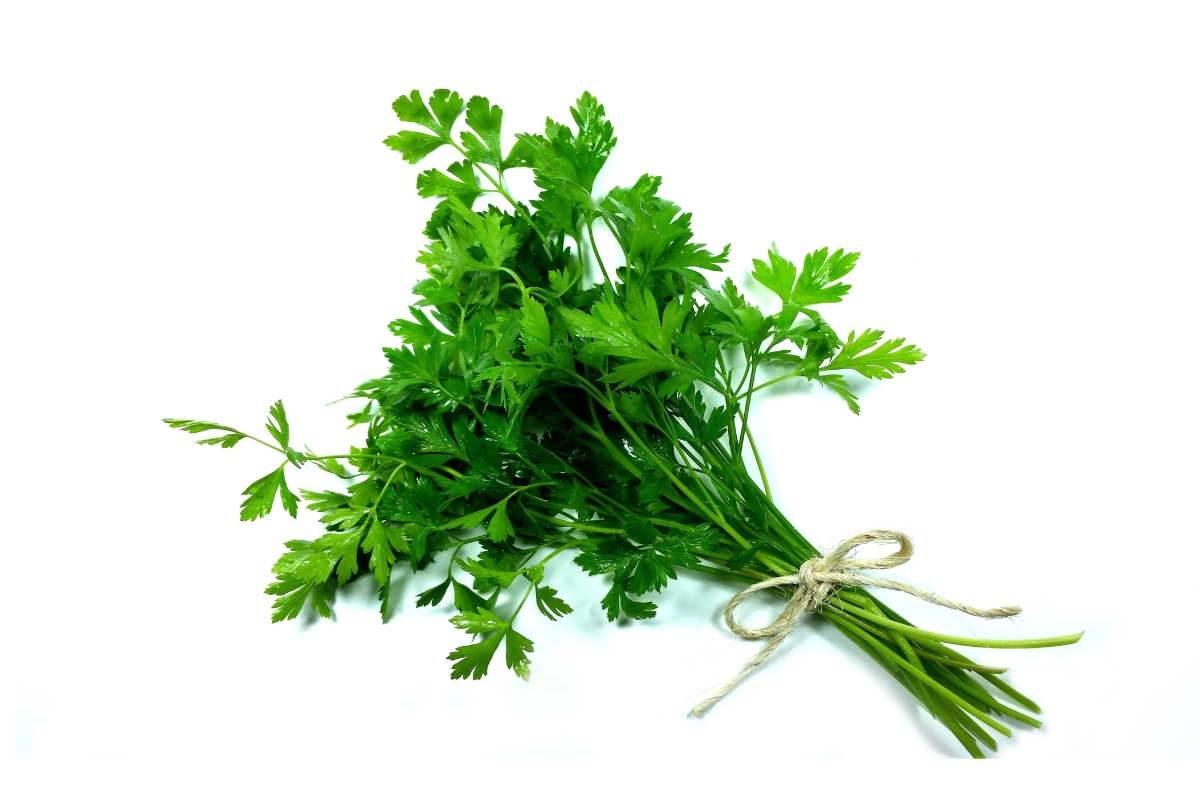
Parsley
Parsley is a good source of vitamin K, vitamin C, and vitamin A. It also contains flavonoids that have anti-inflammatory and antioxidant properties. Parsley has been shown to help improve digestion and reduce bloating.
Thyme
Thyme is a good source of vitamin C, vitamin A, and iron. It also contains compounds that have antibacterial and antifungal properties. Thyme has been shown to help improve respiratory health and reduce coughing.
Rosemary
Rosemary is a good source of vitamin C, vitamin A, and iron. It also contains compounds that have anti-inflammatory and antioxidant properties. Rosemary has been shown to help improve memory and concentration.
Mint
Mint is a good source of vitamin C, vitamin A, and calcium. It also contains compounds that have anti-inflammatory and antibacterial properties. Mint has been shown to help improve digestion and reduce nausea.
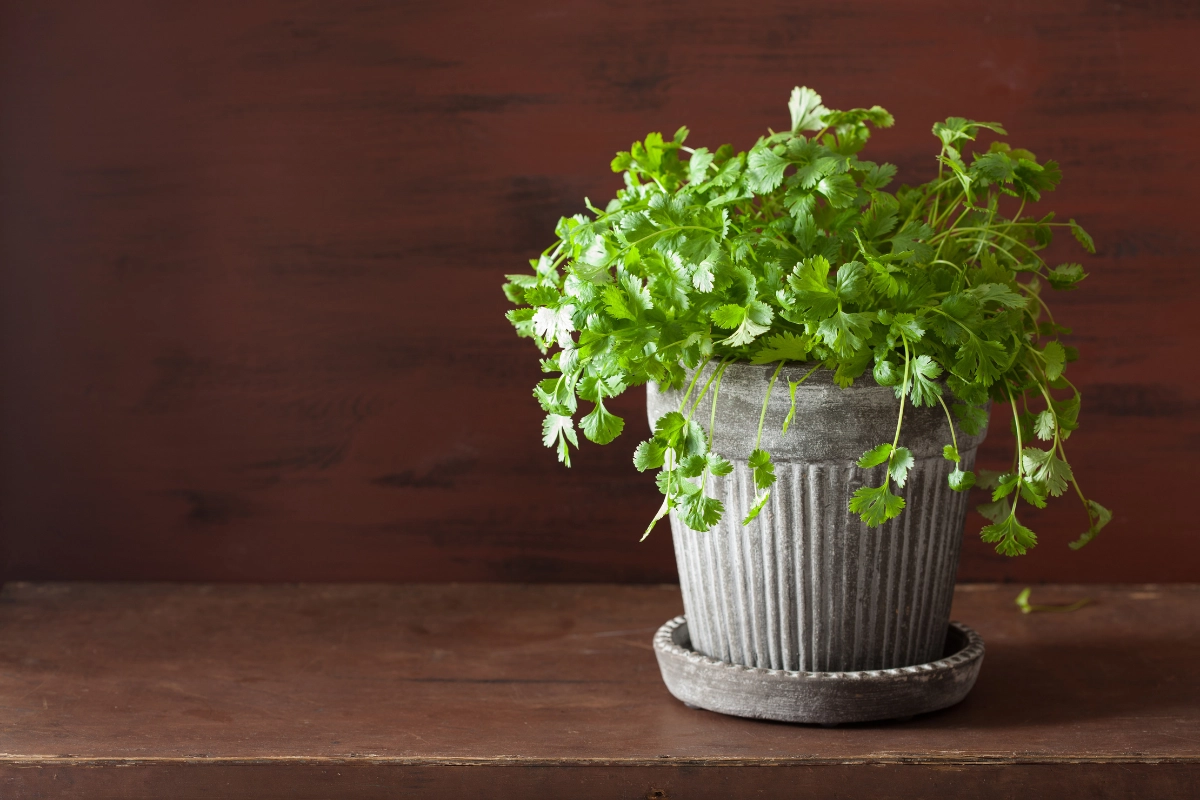
Cilantro
Cilantro is a good source of vitamin K, vitamin C, and vitamin A. It also contains compounds that have anti-inflammatory and antibacterial properties. Cilantro has been shown to help improve digestion and reduce bloating.
Chives
Chives are a good source of vitamin K, vitamin C, and vitamin A. They also contain compounds that have antibacterial and antifungal properties. Chives have been shown to help improve digestion and reduce inflammation in the body.
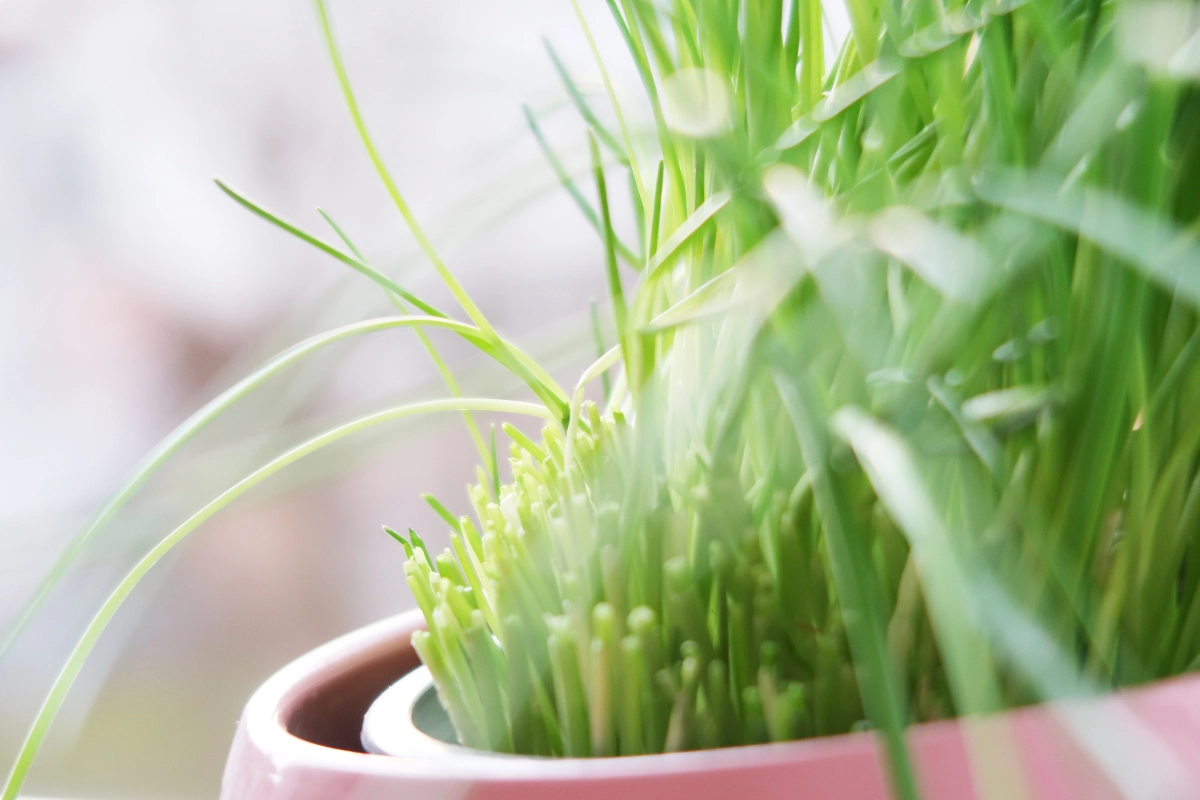
In Conclusion, Indoor Herb Garden Ideas
In conclusion, indoor herb gardens can be both healthy and rewarding. Growing your own indoor herb garden has a few challenges and many rewards. The top challenges for growing herbs indoors include lack of sunlight, overwatering or underwatering, pests, and choosing the right soil and containers. It’s important to research the specific needs of each herb and provide the proper care to ensure a successful indoor herb garden.

Growing herbs indoors is easy and totally doable. It is a rewarding hobby and contributes to your healthy eating. Once you get started you will wonder why you hadn’t tried it sooner. Some of the top rewards for growing herbs indoors include having fresh herbs at your fingertips for cooking, saving money on buying herbs at the grocery store, improving air quality in your home, and adding a natural and beautiful element to your decor. Plus, it can be a fun and rewarding hobby!
Read about the art of igrounding here.
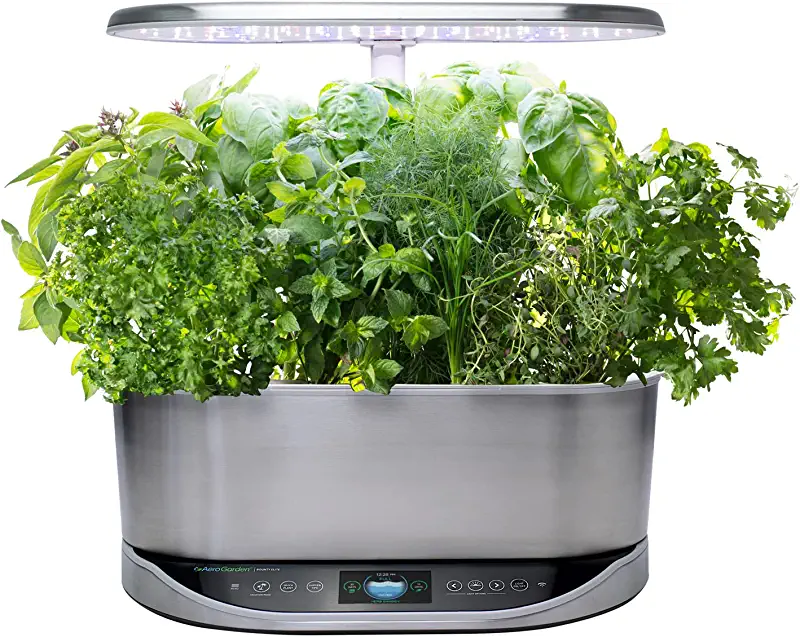
Advertisement
As an Amazon Associate, Omega 3 Tips earns from qualifying purchases.
Grow your own herbs with this stainless steel design that features a larger water bowl and grow deck; vacation mode keeps your plants healthy while you’re out of town!
ADD ADHD Alzheimers antioxidants arthritis Best Sources of Omega 3 6 9 Fatty Acids cancer exercise fatty acids fatty fish fermented foods fish oil flax seed oil health benefits healthy diet Healthy Lifestyle healthy lifestyle benefits healthy lifestyle food Healthy Weight loss heart disease herring hummus indoor herb garden grow light indoor herb garden kits indoor herb garden on wall indoor herb garden planters jackfruit joint stiffness mackerel meditation mental health mushrooms oily fish omega-3 omega-3 fatty acids omega 3 6 9 risks and side effects Omega3tips.com salmon sardines super foods tuna unplug vitamins Weight loss wellness
According to gardening experts, the hardest herbs to grow indoors are dill, fennel, lavender, and sage. These herbs require specific growing conditions and can be more challenging to maintain in an indoor environment.

